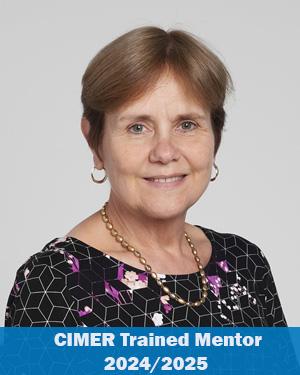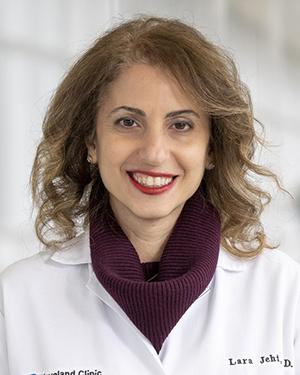Research News
10/18/2024
Training healthcare professionals to solve problems with AI, quantum computing
Cleveland Clinic offers opportunities for clinicians and researchers to gain much-needed high-performance computing skills to approach their jobs in new ways.

Quantum computing and artificial intelligence (AI) are critical to developing new strategies for solving healthcare’s toughest problems faster and more accurately than ever before. The challenge is that many researchers and clinicians lack even basic training in computer science.
Cleveland Clinic is developing programs to train current clinicians and researchers not just in the basics of this technology, but also in how to think about problems using it. For decades, university programs in biology, genetics and other life sciences have emphasized lab work, not computer science. With the number of classical and quantum computing research applications in healthcare on the rise, basic understanding of computer science has become essential, says Chris Moravec, PhD, Vice Chair of Research and Education and Director of Cleveland Clinic’s Research Education Training Center (RETC).
“I think science will move much faster in the future because of high-performance computing's ability to analyze massive amounts of data,” Dr. Moravec says. “It is critical for our researchers to have training in computer science because of its ability to improve our accuracy and efficiency. There will always be lab work, but our ability to understand disease and design treatments will be significantly enhanced through high-performance computing.”
For example, if investigators want to identify if a specific protein is involved in heart disease, current methods can take months or years in a lab analyzing samples. In the future, identifying this protein could be as simple as using a machine learning or quantum computing algorithm to analyze databases with hundreds of thousands of samples in minutes.
Researchers need to be trained in how to add advanced computing tools to their research arsenal. This approach requires knowledge of coding languages and being able to write algorithms for both classical and quantum computers.
Training researchers and clinicians
The Center for Computational Life Sciences (CCLS) is leading efforts to ready the current Cleveland Clinic workforce to incorporate high-performance computing and quantum computing into their practice. Through virtual and experiential learning programs, there are opportunities for everyone from clinicians to experienced computer scientists to expand their knowledge.
Through the Discovery Accelerator, Cleveland Clinic and IBM’s high-performance computing partnership, employees have access to the IBM Quantum Learning Journey and the IBM Improving Healthcare Program. These virtual learning experiences provide a comprehensive overview of quantum computing, AI, data science and cloud computing, as well as their potential applications for healthcare and life sciences. Through these self-paced courses, professionals can deepen their understanding of high-performance computing and learn basic skills to begin applying it to their work.
For individuals with more advanced knowledge of high-performance computing, the two organizations offer technical seminars and workshops focused on computational projects. These sessions offer a chance for investigators from across the enterprise to come together to discuss their latest projects, collaboration opportunities and breakthrough discoveries. These sessions cover a wide range of topics including clinical trial optimization, foundation models and generative AI.
“In the few years ahead, it will be practically impossible for any scientist to lead in basic, clinical, or translational research, without a solid understanding of advanced computational approaches,” says Lara Jehi, MD, Chief Research Information Officer and CCLS’s director. “Research will shift to mostly computation with some wet bench experimental validation. Through the programs offered by CCLS, we are preparing the workforce of the future and empowering them with exceptional knowledge.”
Building a culture of continuous learning
At the Lerner Research Institute (LRI), researchers are proactively looking to offer more opportunities around computing. A group of postdoctoral fellows in LRI realized there is a demand for computer science education amongst their colleagues. To help them learn the basics, they offered to teach a course on Python, a coding language that is necessary for quantum computing. The fellows provided the course free of charge to anyone who was interested. To their surprise, more than 150 caregivers signed up for the course.
“The response to this course is an indication that our trainees recognize they need these skills to advance their research,” Dr. Moravec says. “Ten years from now you won’t take a biology class without learning computer science methods. Right now, we need to help our trainees gain AI, machine learning and quantum computing techniques outside of their classrooms.”
Teaching the next generation
Dr. Moravec says training in computer skills, especially in AI and machine learning, needs to begin as soon as possible. To help prepare the next generation of biomedical researchers, CCLS is also partnering with local universities to create programs for students in computer science.
Case Western Reserve University, Kent State University and Cleveland State University are working with CCLS to provide computer science students with experience working in research labs. These opportunities will provide unique perspectives as biomedical sciences and computer sciences are often separated at the university level.
For students interested in learning more about computer science and healthcare research, read about our Discovery Accelerator internships.
Featured Experts
News Category
Related News
Research areas
Want To Support Ground-Breaking Research at Cleveland Clinic?
Discover how you can help Cleveland Clinic save lives and continue to lead the transformation of healthcare.
Give to Cleveland Clinic
